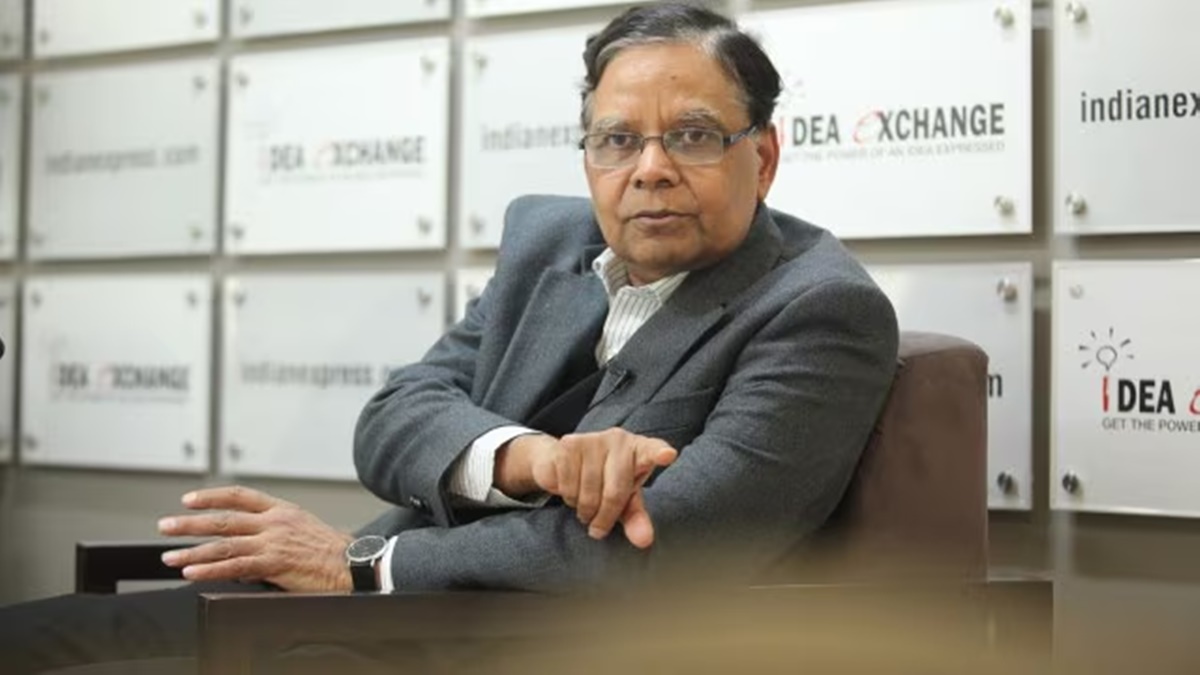With the tariff war unleashed by the US threatening to hit India’s shipments to its largest exports market hard, 16th Finance Commission chairman Arvind Panagariya on Friday said New Delhi should finalise a free trade agreement (FTA) with the European Union (EU) at the earliest, and move ahead with pending economic reforms to boost economic growth.
Speaking at the Business Today India@100 event, Panagariya said: “… in some ways this is practically like the 1991 moment that there is a crisis that has been brought about by the massive tariffs that the US (has imposed on India)… It is a good time to look back and take stock and think of what we could do,” he said.
“A number of things are to be done. Our reform agenda… a lot of things got done and a lot of things remain to be done,” Panagariya said.
FTA with EU urgent amid global realignment
He dismissed US President Donald Trump’s jibe that India is a dead economy, by saying maybe ‘dead bodies do move’.
“At this pivotal moment we should aggressively pursue the FTA with the EU. That is very, very important. As one market (US) seems to be kind of closing, we need to open wider another market,” he said.
“Then there are reforms that need to be done particularly with labour and land markets,” he added.
Saying that India has come out of much bigger crises, he said, supply chains shift depending on where the best deal is available.
“If we face higher tariffs in the US and lower tariffs in the EU, and Vietnam faces lower tariffs in the US, then our exports can shift out of the US into the EU… In markets, the profit motive is strong and entrepreneurs are so smart that they readjust the supply chains very rapidly,” Panagariya said.
He said in the longer term, “if we set our own house in order, (I don’t see) there is nothing stopping our trajectory of growth. I see considerable room for acceleration (of growth trajectory) that we have”.
Unshackling land, labour, and regulatory bottlenecks
Asked if India can be called a protectionist nation, Panagariya said there may be some protectionist measures, but India is an open economy.
On Trump’s “dead economy” remark, Panagariya said, “You don’t grow at 7% plus (if that is the case), and in dollar terms we are actually growing at more than 7%. I don’t know what the definition (of dead economy) is. Maybe dead bodies do move”.
Prior to the US tariffs imbroglio, most agencies had forecast India to be the fastest-growing major economy by growing around 6.5% in FY26. Some of the agencies have cut their forecast by up to 0.5 percentage points for FY26 if the higher US tariffs are implemented and stay.
Responding to a question on what more reforms can be undertaken, Panagariya said at the central government level, there could be more trade agreements and also a focus on Asian markets for exports, besides reassessing the stance with China.
He said the implementation of labour codes, which have already been approved by Parliament, will be crucial for job creation and manufacturing.
Panagariya suggested that land-related reforms need to be done.
“When we think about urbanisation, we are thinking about how to make life better for citizens of cities and towns. We don’t think about preparing our cities for the businesses,” he said.
Besides, cutting down on the number of regulations both at the centre and state levels will also help in the ease of doing business.
“We are probably the only country in the world which, effectively, through these multiple permissions, put a restraint on our exports,” he added.

